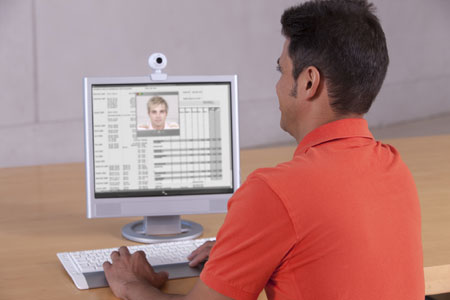 Updated 6-21-19. Remote notarization continues to gain traction in the U.S., with more states passing new laws to allow the use of online audiovisual communication in place of personal appearance starting in 2019. Here’s a look at some of the latest remote notarization laws. Please see the Notary Bulletin's Remote Notarization FAQ for the current full list of states that have enacted remote notarization laws.
Updated 6-21-19. Remote notarization continues to gain traction in the U.S., with more states passing new laws to allow the use of online audiovisual communication in place of personal appearance starting in 2019. Here’s a look at some of the latest remote notarization laws. Please see the Notary Bulletin's Remote Notarization FAQ for the current full list of states that have enacted remote notarization laws.
Michigan
Michigan’s new law permits remote electronic notarizations (sometimes called webcam or online notarization) using a technology platform and identity proofing process approved by the state. Michigan Notaries must also make an audio or visual record of the remote notarization along with the standard journal entry. Audio and visual records of remote notarizations must be retained by the Notary for at least 10 years after the date the notarization is performed. Michigan’s law officially took effect on September 26, 2018, approval of technology providers for remote notarization platforms did not start until March 30, 2019.
Minnesota
Effective January 1, 2019, Minnesota now permits Notaries who register with the state to perform remote online notarizations, for which they may charge a maximum fee of $25 for each remote online act. Registered remote Notaries must keep a secure electronic journal of remote online acts and keep an audiovisual recording of each notarization. The Notary’s electronic journal and seal must be kept under the Notary’s exclusive control.
Indiana
Starting July 1, 2019, Indiana will authorize currently commissioned Notaries to perform remote notarizations. In order to qualify, Notaries must first register with the state, pay a $5 registration fee, meet state educational requirements and be able to competently operate any audiovisual communication, identity proofing and credential analysis technology used during remote notarizations. Indiana requires registered remote Notaries to be physically present in the state of Indiana at the time of the notarization but permits remote notarizations for signers outside Indiana or outside the U.S. under certain conditions. Indiana authorizes remote Notaries to charge a maximum fee of $15 for each remote notarization performed. Indiana Notaries should contact the Secretary of State's office after July 1, 2019 for information when remote notarization services will become fully available.
Tennessee
Tennessee’s new law permits qualified Notaries to perform remote online notarizations for a signer regardless of the signer’s physical location, provided the Notary is physically located in Tennessee. Starting July 1, 2019, Notaries who wish to perform remote notarizations must submit an application and receive a separate remote notarization commission from the Secretary of State. The Notary may identify a signer remotely using personal knowledge, remote presentation of a government-issued identification that contains a signature and photograph of the bearer, or a credential analysis or identity proofing system that meets criteria set by the Secretary of State. Tennessee Notaries should contact the Department of State after July 1, 2019, for additional information when remote notarization services will become fully available.
Vermont
Effective July 1, 2019, Vermont will permit Notaries to perform remote notarizations using a secure communication link using technology that meets standards to be set by the Secretary of State’s office. Vermont Notaries should contact the Secretary of State's office after July 1, 2019 for information when remote notarization services will become fully available.
David Thun is the Assistant Managing Editor with the National Notary Association
Related Articles:
More states enact remote notarization, considering bills in 2019